Generally speaking, three wheelers sound like a bad idea to me. Except here I am, chilled to the bone and grinning like a loon in Worcestershire, England, with an air-cooled vee-twin spitting brimstone in front and just one wheel behind me. It is not a Morgan, the name most associated with cars missing their fourth wheel, but a Pembleton V-Sport, a name and model you’ve probably never heard of. Does the world need another one of these refugees of automotive history? Yes, absolutely.
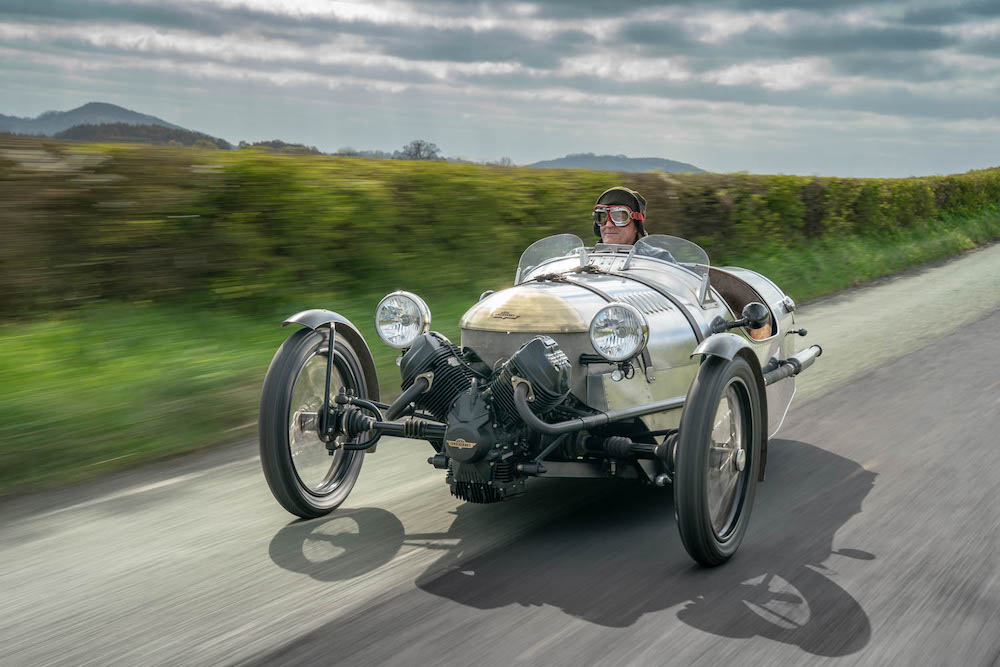
Of the self-selecting bunch of lunatics who pilot vehicles like this, not all of them want a $40,100 Morgan 3 Wheeler (or, for that matter, a Polaris Slingshot). True, Morgan’s model is the icon in the trike market, but it’s expensive, very fast, and requires expert driving with its single driven rear wheel. Is there an alternative, perhaps something a little more gentle, perhaps driving the front wheels instead of the rear?
Enter the Pembleton. “The what?!” I hear you cry. This rather lovely steel-framed and aluminum-bodied trike first saw light 20 years ago, conceived, it turns out, because of an anomaly in the price structure of the ferry that runs from the Holyhead in Wales to Dún Laoghaire in Ireland.
“We were planning a cycling holiday,” says Pembleton designer Phil Gregory, “and my wife noticed that motorcycles and trikes went free, so she said I should build one—it was after a few ciders. I ordered the steel and we called it Pembleton after the name of the caravan which we stripped for the aluminum.”
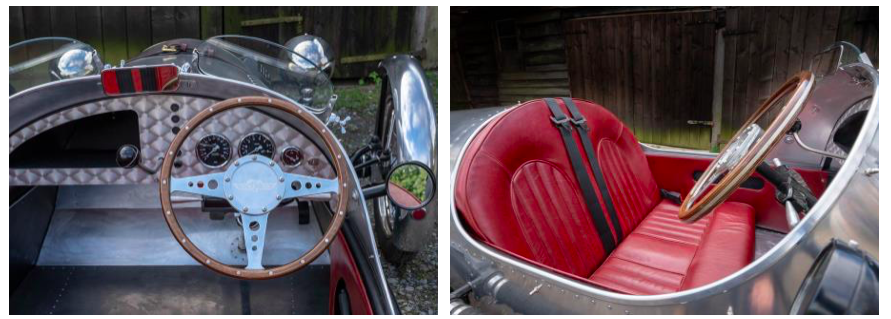
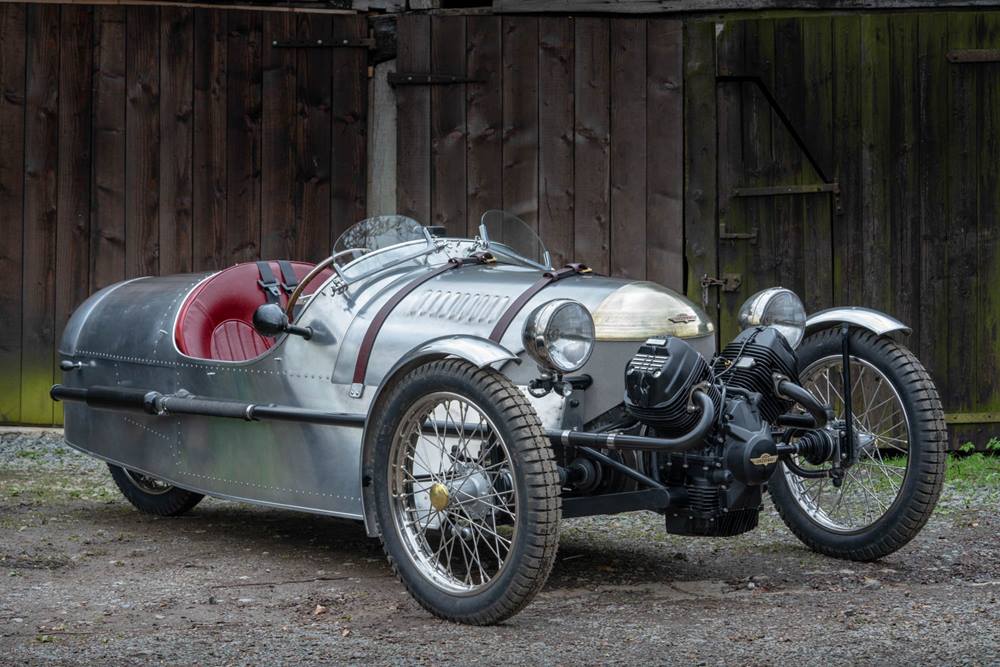
Gregory is one of those wonderfully instinctive engineers that often get left on the fringe of industry. He’d already built a Ford-based mid-engined coupé kit car with his brother Roger. The first Pembleton, using chassis and drivetrain parts from a front-wheel-drive Citroën 2CV, was a well-designed and pretty successful ride. Known as the Pembleton Grasshopper Super Sport, it sold 450 examples in three- and four-wheeled kit form for two decades, mainly powered by Citroën engines.
“It was only supposed to be for fun in the first place,” Gregory says. “I wanted to make something a good hands-on guy could make a lovely car out of.”
And that’s where the Pembleton Grasshopper would have remained, marooned up a charming motoring cul de sac, but for Gregory’s son, Guy, who between college and university decided to build his own version of his father’s car. This got him thinking.
“I always wanted to be making things; I was very hands on,” Guy says. He thought the Pembleton could have a second life, still hand-assembled but sold as a fully-finished car, built on a jig for accuracy, with laser-cut panels and a different engine.
“I was very flattered,” Gregory says. “I only started to worry when he said we needed a complete redesign. It’s been a massive amount of work.”
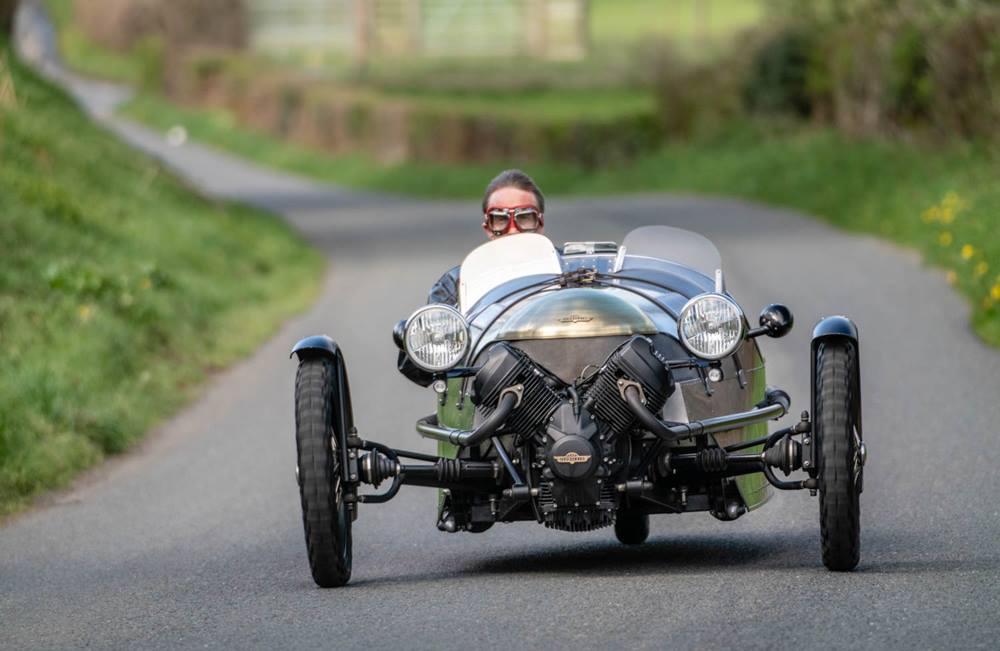
The Grasshopper name was deep-sixed, along with the 2CV suspension and engine in favor of a new Moto Guzzi air-cooled vee-twin supplied from the factory (although the Gregorys are not allowed to mention the name in their marketing). In this case, it’s the fuel-injected, 744-cc, 51-horsepower, 44-lb-ft unit from the V7 III Stone motorcycle. It bolts to a reconditioned four-speed Citroën 2CV transaxle driving the front wheels. An all-new suspension still follows the 2CV pattern, with horizontal springs and dampers actuated via bell cranks and pull rods. This means the weight is mounted low in the frame and loads are taken by those stronger chassis members. Brakes are all discs, inboard at the front.
The V-Sport is beautifully built, partly as a result of those accurate panels, which make assembly a cinch. The aluminum coachwork fits snugly with narrow panel gaps. And in bare metal, the beetle-back style looks fantastic, though some owners prefer the somewhat easier-to-maintain option of paint.
With no prop-shaft tunnel, the cockpit is spacious and Spartan; door liners are a $320 option. It has a great driving position, but it’s best to slide yourself across the bench, vintage style, from the passenger side. The wood-and-aluminum steering wheel is a thing of great beauty, and there are surprising amounts of practicality. There’s even a big boot behind the seat, and you can specify a luggage rack if you are packing a trousseau. Undo the leather hood straps (a nice touch) and you can access the Citroën transmission and even change the inboard discs, which any mechanic will attest is virtually impossible on a 2CV.
Press the starter and the Guzzi motor graunches into grumpy, lumpy life. As with the old Citroën, the gear lever punches out of the dashboard, though this is a lot more accurate and precise as it’s all connected with rod end bearings. Shift quality is light and fast with a lever that’s a finger’s stretch from the steering wheel. The shift pattern is reversed, with first towards you opposite reverse, but it’s quickly learned. The clutch is light but sharp, and with narrow 110/80 R19 Pirelli Scorpion Rally STR tires, you can burn rubber from a stop with little effort. Rivals tend to use an adapted car wheel and tire combination on the rear, which gives more grip and more safety in the event of a blow out. Pembleton, however, sticks with the purity of a motorcycle setup on a reversed Citroën rear suspension. On dry, abrasive black top, the result is grippy and incredibly positive, though you’d need to be careful when it is wet.
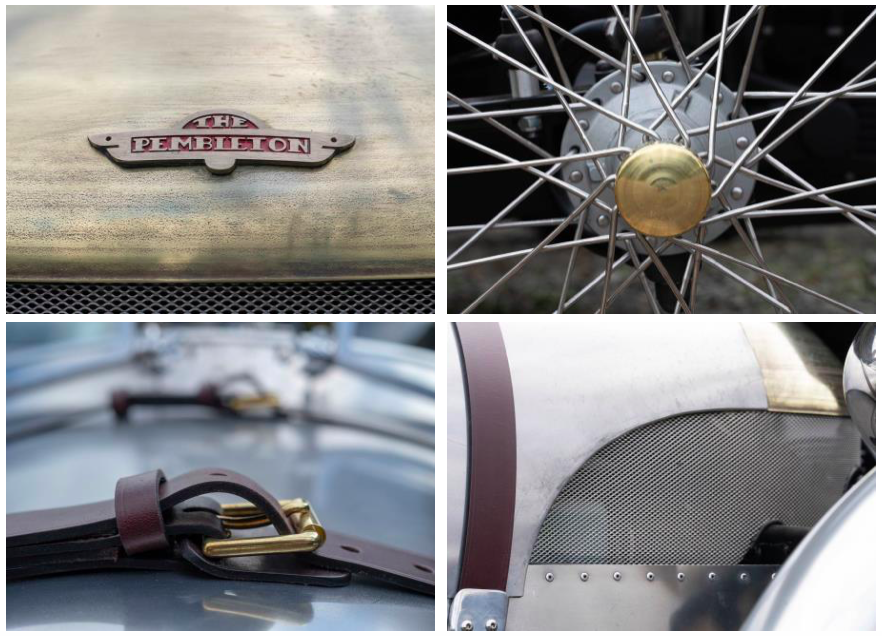
Jam the gas pedal and the vee-twin’s exhausts sound off like a following artillery barrage and forward progress is fast. Hardly surprising since the whole car weighs just 657 pounds. There’s great mid-range punch, and it’s hard not to blip the throttle between ratios just for the hell of it. No performance figures were available, but I did achieve an indicated 100 mph and it feels like 0–60 mph in under seven seconds is easily attainable on the right surface.
The Pembleton’s ride is sensational, floating over bumps and crests, comfortable to a fault, although the rear will bunny hop when it catches the bump you tried to straddle with the front wheels. The handling is pretty good, although I recall the wise words of the late Tony Divey, the former Lotus draftsman who designed the Triking, which was acknowledged to be one of the finest handling three wheelers. “All three wheelers are unstable,” he said. “It’s how you use that instability that’s the important thing.”
While rear-drive three wheelers such as the Triking and Morgan can be steered on the throttle by spinning up the rear tire, the Pembleton’s layout rules out that possibility, but makes it more predictable for drivers raised on front-wheel-drive cars. This isn’t an unsafe vehicle, but as with all three wheelers, you need to concentrate. You can provoke danger by waggling the steering wheel about, but if you simply get on with the business of driving, it’s not an issue.
In the UK, the V-Sport starts at £21,995 (about $28,770), but there’s a sizable options sheet and there will soon be some form of roof. I’d also want door cards and some carpet for the bare cockpit. The Gregorys are a bit cagey about supplying kit cars again, but they have done so for U.S. customers in the past, and no carmaker turns away willing customers. In other words, if you want a V-Sport in the U.S., you’ll have to ask nicely and assemble it yourself. And if you do give them a ring, you’ll never stop grinning.
Report by Andrew English for hagerty.com










